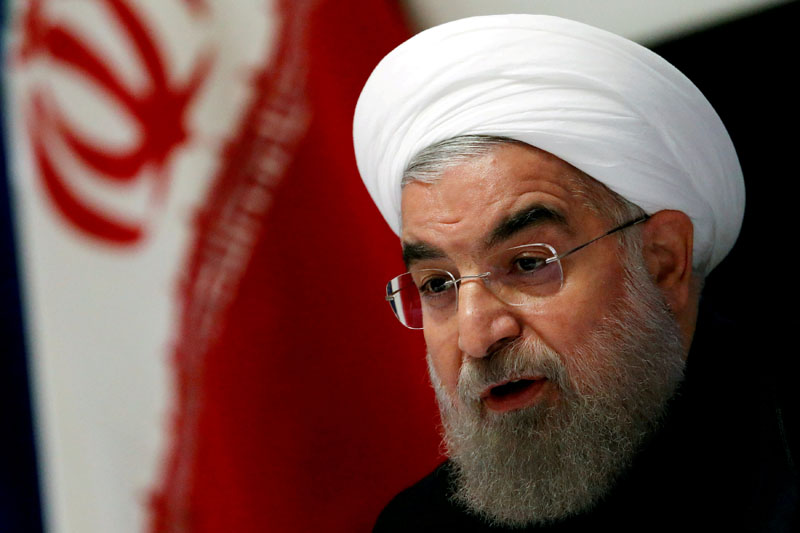Rouhani warns weakened Iran less able to fight trafficking
TEHRAN, Iran (AP) — President Hassan Rouhani on Saturday warned Western countries that they will face a massive influx of drugs if Iran becomes weakened by U.S. sanctions.
Rouhani spoke in Tehran at a six-nation conference on fighting terrorism attended by parliament speakers of Afghanistan, Iran, Pakistan, Turkey, China and Russia.
In remarks broadcast on state TV, Rouhani said a weakened Iran would be less able to fight drug trafficking.
"Weakening Iran by sanctions, many will not be safe," he said. "Those who do not believe us, it is good to look at the map."
Iran lies on a major drug route between Afghanistan and Europe and the Persian Gulf states. Afghanistan is the world's largest producer of opium with its Helmand Province being the biggest opium-producing region. Opium is the raw material for heroin and Afghan farmers harvest about 80 percent of the world's supply, according to U.N. reports.
Iran's economy is reeling after the U.S. re-imposed sanctions lifted under Tehran's nuclear deal with world powers. President Donald Trump withdrew the U.S. from the deal and began restoring sanctions. Rouhani called the U.S. sanctions as "economic terrorism".
Iran pays a heavy price to fight drug trafficking, with a number of border guards killed in fighting drug smugglers every year. Every year, the country burns about 100 tons of seized narcotics as a symbol of its determination.
Iran has also complained about accusations that it violates human rights by executing convicted drug smugglers, who make up 73 percent of executions in Iran.
In 2013 alone, Iran spent more than $26 million to dig canals, erect walls and embankments, create new outposts and set up barbed wire along its 2,000-kilometer (1240-mile) border with Afghanistan and Pakistan, according to government statistics.
Until 2016, Iran annually spent some $2.5 billion to fight drug trafficking, officials say.






